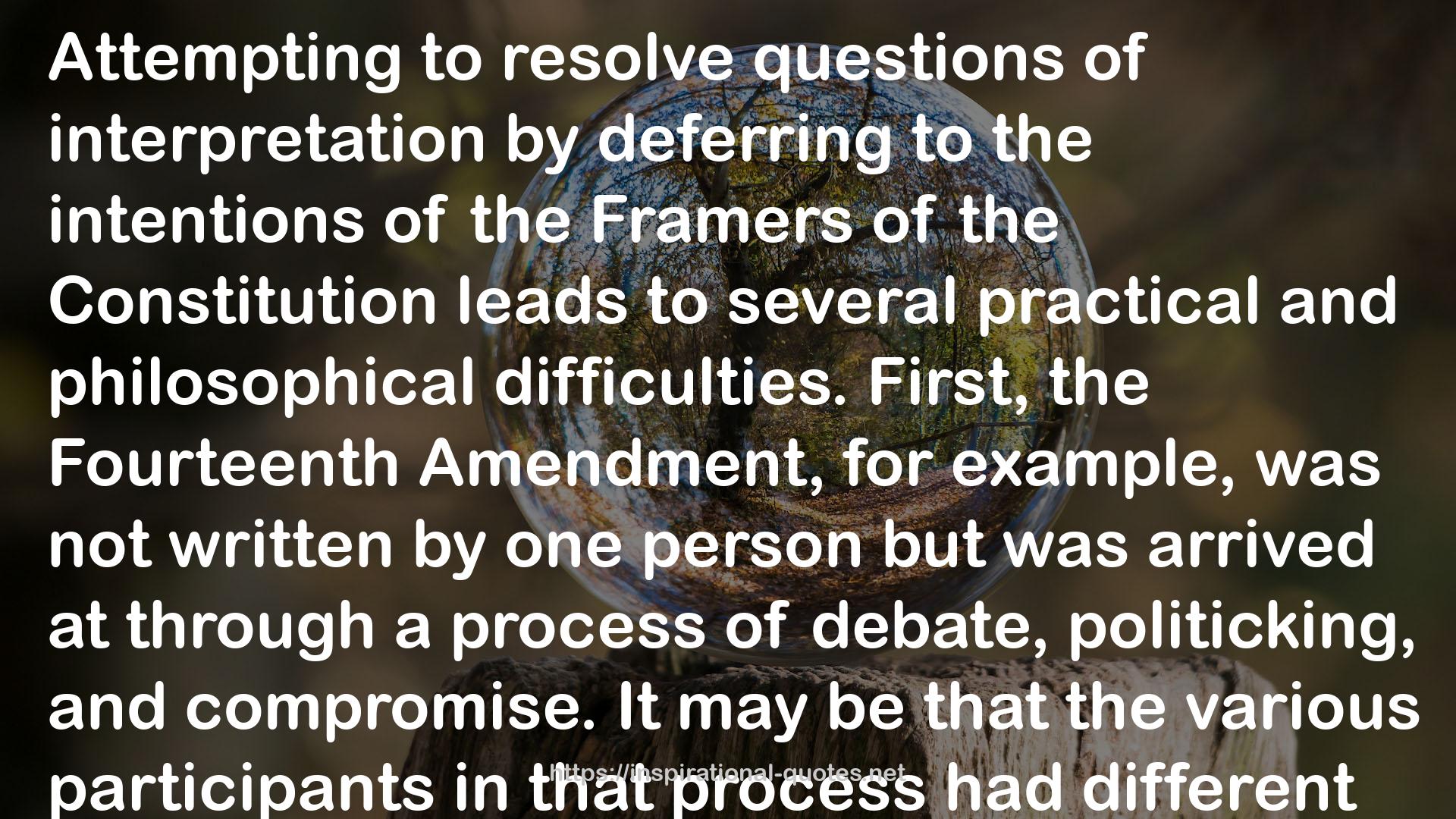" Attempting to resolve questions of interpretation by deferring to the intentions of the Framers of the Constitution leads to several practical and philosophical difficulties. First, the Fourteenth Amendment, for example, was not written by one person but was arrived at through a process of debate, politicking, and compromise. It may be that the various participants in that process had different intentions about what the amendment should mean and how it should be implemented; those intentions may even have been contradictory. Moreover, some would argue that even if the Constitution had one author with one coherent intention as to its meaning and future implementation, that intention could never be completely accessible to judges, or even historians, two centuries later. Finally, assuming for the sake of argument that the Constitutions; Framers did have a unitary, discoverable intention as to how it should be implemented in a particular case, it is not clear that that intention should necessarily govern constitutional interpretation in the late twentieth century, a profoundly different time and society from that of the Framers. The Constitution endures because it is a vehicle for the most central values of American society; but those values necessarily evolve as society changes. "
― Morton J. Horwitz
Image for Quotes

